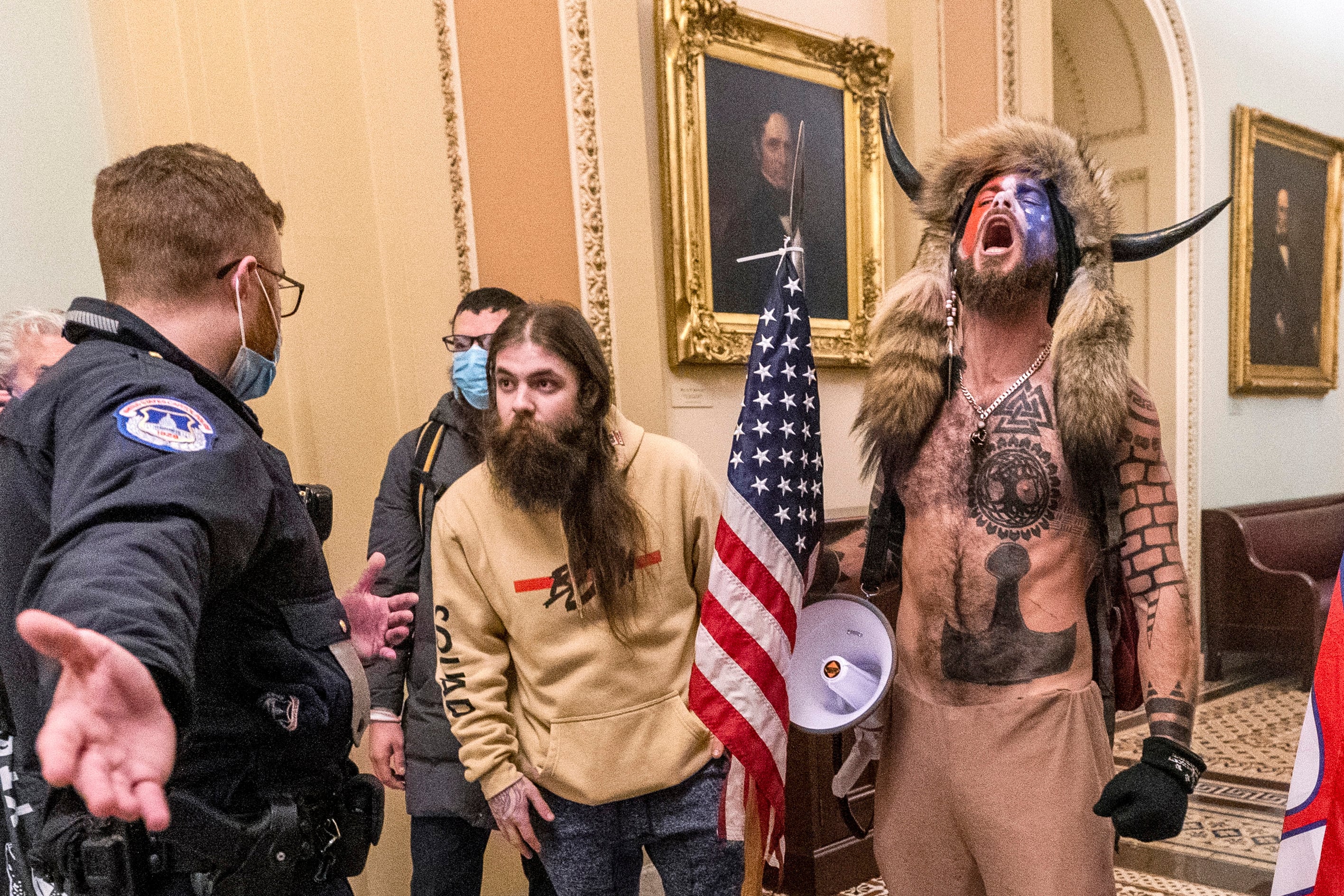Even before the Jan. 6 attack on the Capitol, Congress ordered the Defense Department to do a better job reporting and tracking extremist behavior among troops. The first public release of available statistics shows hundreds of investigations carried out in the first nine months of the year, according to a DoD inspector general report published Wednesday.
Among them were dozens of racially-motivated, anti-government or “domestic violence” allegations across the Army, Navy, Marine Corps and Air Force, resulting in 10 non-judicial punishments, one court martial, 31 administrative actions and 18 unspecified punishments.
The 2021 National Defense Authorization Act required DoD to standardize its policies so that allegations of extremism are referred to the DoD inspector general, as well as an annual implementation progress report.
The report includes events from Jan. 1 to Sept. 30 of this year.
Though Defense Secretary Lloyd Austin ordered a one-day standdown for the entire department and stood up a working group earlier this year, he hasn’t given any guidance to the services on standard practices for reporting and tracking extremism activity.
The services have taken a piecemeal approach for years, generally working with the FBI when allegations are made and deferring to the Justice Department when charges are brought, but never centrally tracking the number of their personnel who had been investigated.
After it became clear that a disproportionate number of arrested Jan. 6 Capitol rioters were either currently serving or former members of the military, DoD struggled to provide any numbers on extremist activity because there were no tracking mechanisms in place.
Similarly, the FBI declined to provide data on service members it had investigated.
As part of its report, DoD IG asked for this data.
“The Military Departments reported issues with compiling and validating their data and, in some cases, the reported numbers were conflicting,” according to the report.
But what they were able to find is illuminating. The Army reported 33 allegations of “racially motivated violent extremism,” while the Navy had 30, the Marine Corps had seven and the Air Force reported none.
In the anti-government/anti-authority category, there were 34 Army reports, 14 Navy reports, 25 Marine Corps reports — despite Marines making up about 10% of the total force ― and none from the Air Force.
The Air Force reported 102 allegations of “domestic violence extremism participation,” which is not clearly defined.
The Air Force did not immediately respond to a request to define the term.
The Air Force was also the only service to report “trespassing at the U.S. Capitol,” of which they had 10 allegations.
RELATED

Anti-government extremism was much more common in the Marine Corps.
For example, Marine Corps and Naval Criminal Investigative Service numbers did not match those that the Navy Department submitted.
Now, with a congressional mandate, the department has drafted guidance for the military departments, according to the IG, but it hasn’t been finalized or distributed.
“That policy memorandum provides guidance regarding the reporting requirements of Section 554(b) and instructs the Secretaries of the Military Departments to draft and submit their own policies to the USD(P&R) office for review, within 120 days.”
The IG, likewise, found that the services have struggled to collect their own data without any clear direction from the defense secretary’s office.
The report found that each service has their own efforts underway: The Army requires all extremism investigations to be reported to Army Criminal Investigation Command; the Navy wants to track extremism court-martial proceedings centrally; the Marine Corps has put out guidance for all of the avenues to report extremist behavior; and the Air Force is creating an identifying code for its legal case management system to tracking extremist allegations.
For the IG’s part, those constituted steps toward fulfilling the 2021 NDAA requirements. So did the working group, which is tasked with creating a new definition for extremism.
That report was due to Austin in July.
“The report is nearing completion,” Pentagon spokesman John Kirby told Military Times in October, adding, “And it will, as we’ve talked about, it will include a new definition set of what extremist activity comprises.”
Meghann Myers is the Pentagon bureau chief at Military Times. She covers operations, policy, personnel, leadership and other issues affecting service members.




